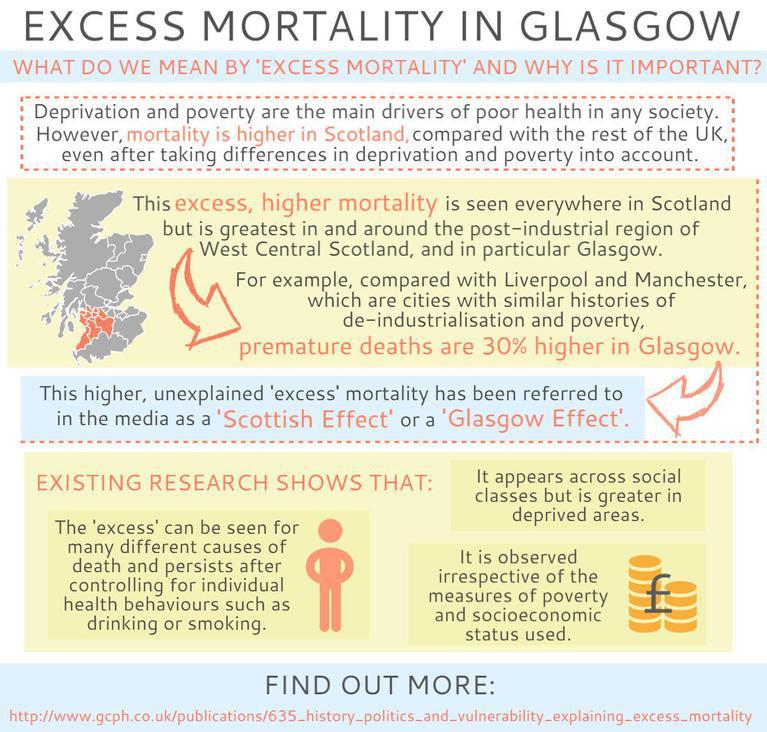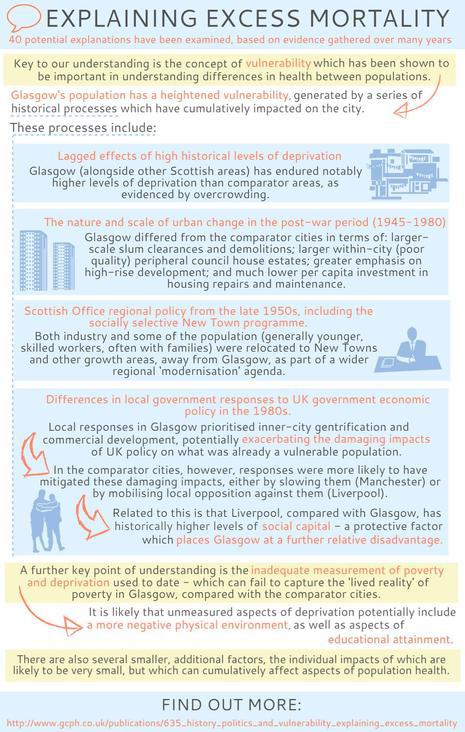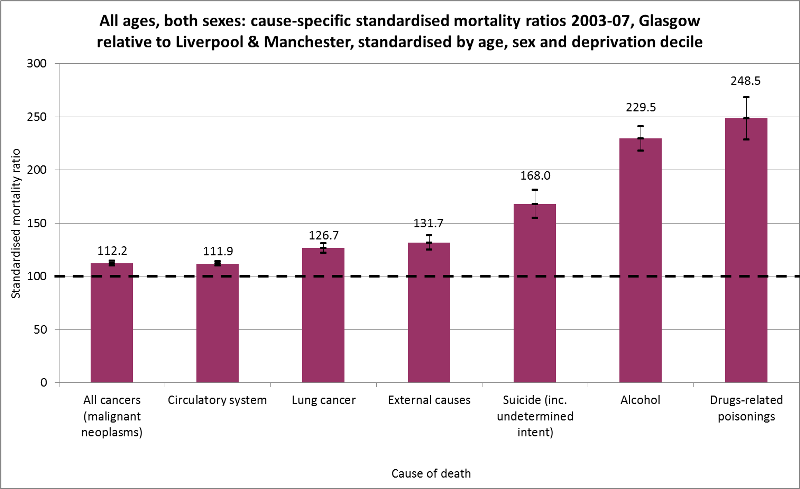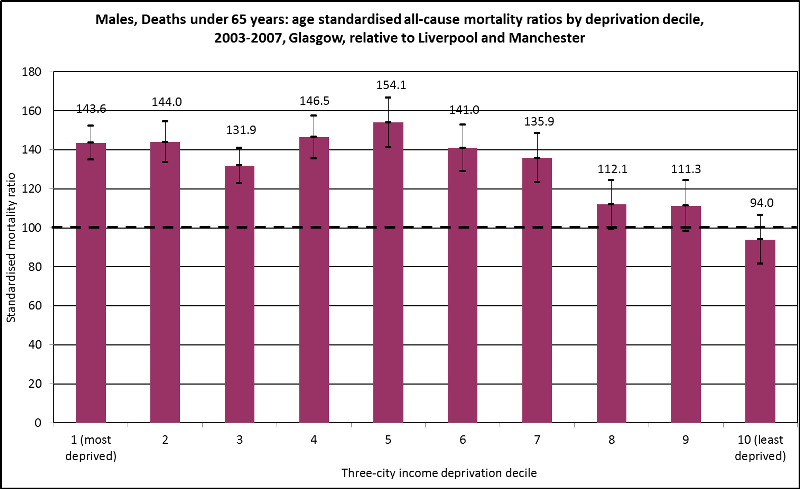Excess mortality
'Excess mortality' has been defined as higher mortality in Scotland compared with elsewhere in Britain, over and above that explained by socioeconomic deprivation. Previous research has shown that premature mortality in Glasgow is 30% higher than in Liverpool and Manchester, cities with similar socioeconomic profiles and histories of deindustrialisation. In May 2016, GCPH published a synthesis report that identified the most likely underlying causes of Scotland’s and Glasgow’s levels of ‘excess’ mortality – History, politics and vulnerability: explaining excess mortality in Scotland and Glasgow.
In May 2016, GCPH published a synthesis report that identified the most likely underlying causes of Scotland’s and Glasgow’s levels of ‘excess’ mortality – History, politics and vulnerability: explaining excess mortality in Scotland and Glasgow.
The report reaffirmed that the causes are multiple, complex, and interwoven, but in large part relate to a greater vulnerability among the Scottish population to the main drivers of poor health in any society – poverty and deprivation – caused by a series of historical decisions and processes.
Alongside the research findings were a detailed set of resultant policy recommendations aimed at national and local government which were endorsed by a range of experts in public health and other relevant disciplines. For further information read the accompanying infographics or go to the excess mortality page on the GCPH website.
For further information read the accompanying infographics or go to the excess mortality page on the GCPH website.
The first graph below illustrates excess mortality for different causes of death in Glasgow relative to Liverpool and Manchester after controlling for age, sex and deprivation. For all the causes shown, mortality in Glasgow is higher than in Liverpool and Manchester after controlling for the age, sex and deprivation structure of the population.
 The second graph below illustrates excess mortality for males under 65 in Glasgow compared to Liverpool and Manchester for different levels of deprivation. With the exception of the least deprived population decile, excess premature mortality among men was higher than in Liverpool and Manchester across all other levels of deprivation.
The second graph below illustrates excess mortality for males under 65 in Glasgow compared to Liverpool and Manchester for different levels of deprivation. With the exception of the least deprived population decile, excess premature mortality among men was higher than in Liverpool and Manchester across all other levels of deprivation.


